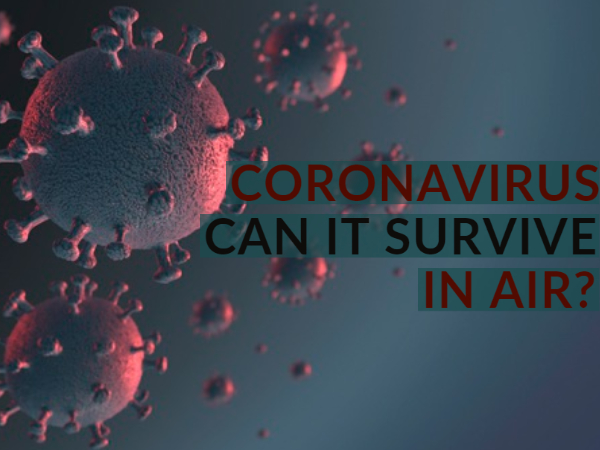Just In
- 5 hrs ago

- 8 hrs ago

- 12 hrs ago

- 15 hrs ago

Don't Miss
- Sports
 PBKS vs MI IPL 2024: Twitter Bows 'Baazigar' Ashutosh Sharma after stellar knock against Mumbai Indians
PBKS vs MI IPL 2024: Twitter Bows 'Baazigar' Ashutosh Sharma after stellar knock against Mumbai Indians - Movies
 Salman Khan Is All Set To Start The Shooting For His Upcoming Movie 'Sikandar', All The Details We Know So Far
Salman Khan Is All Set To Start The Shooting For His Upcoming Movie 'Sikandar', All The Details We Know So Far - Finance
 Wipro Q4 Results Preview: Weak Demand Likely To Drag Revenue Sequentially, EBIT Margins Seen Stable
Wipro Q4 Results Preview: Weak Demand Likely To Drag Revenue Sequentially, EBIT Margins Seen Stable - News
 BRS Chief K Chandrasekhar Rao Slams BJP, Says K Kavitha's Arrest Is Vendetta Politics
BRS Chief K Chandrasekhar Rao Slams BJP, Says K Kavitha's Arrest Is Vendetta Politics - Automobiles
 Aprilia RS 457 Accessories: A Detailed Look At The Prices
Aprilia RS 457 Accessories: A Detailed Look At The Prices - Education
 Karnataka SSLC Result 2024 Soon, Know How to Check Through Website, SMS and Digilocker
Karnataka SSLC Result 2024 Soon, Know How to Check Through Website, SMS and Digilocker - Technology
 Nothing Ear, Ear a With ANC, Up to 42.5 Hours of Battery Launched; Check Price and Availability
Nothing Ear, Ear a With ANC, Up to 42.5 Hours of Battery Launched; Check Price and Availability - Travel
Telangana's Waterfall: A Serene Escape Into Nature's Marvels
Coronavirus: Can It Spread Through Air?
UPDATE: WHO confirmed that the coronavirus is not airborne. As the virus spreads through the droplets generated from an infected person, there were doubts regarding the virus being airborne. However, recent WHO reports confirm that the droplets are too heavy to hang in the air and can quickly fall onto the surface, eradicating the false and confusing claims.
WHO health officials point out that, you can be infected by breathing in the virus if you are within 1 metre of an infected person. Therefore, weighing in on the importance of maintaining social distancing to avoid the spread of the virus [1].
----
As of today, there are 382,750 coronavirus cases with 16,578 deaths. On a hopeful note, 102,522 have recovered.

The global shortage of protective gear for health workers and diagnostic tests will be met by Chinese producers who have agreed to supply the WHO. Air bridges will be used to supply the gears to avoid contact and any possible spread of infection.
However, the new finding that coronavirus can remain airborne is not a cause for fear, added WHO officials.

What Are Aerosol-generating Procedures (AGPs)?
Certain medical procedures produce aerosols that stay in the atmosphere for a longer period of time. Some of the AGPs are as follows [2]:
- Tracheotomy/tracheostomy procedures,
- Intubation, extubation and related procedures,
- Bronchoscopy,
- Non-invasive ventilation (NIV) e.g. Bi-level Positive Airway Pressure (BiPAP) and
- Continuous Positive Airway Pressure Ventilation (CPAP),
- Surgery and post-mortem procedures in which high-speed devices are used,
- High-frequency oscillating ventilation (HFOV),
- High-flow Nasal Oxygen (HFNO),
- Induction of sputum (see glossary) and
- Some dental procedures (e.g. high-speed drilling).
So, when these are done in a medical care facility, there is a possibility that these particles become aerosolized, which means they can stay in the air a little bit longer.

Healthcare Workers Should Take Extra Precautions - WHO
The coronavirus spreads through person-to-person, that is between people who are in close contact with one another (within about 6 feet) and through respiratory droplets produced when an infected person coughs or sneezes [3].
It can also spread from contact with contaminated surfaces or objects when a person touches a surface or object that has the virus on it and then touching their own mouth, nose, or possibly their eyes. However, this is not thought to be the primary way the virus spreads [4].
As the virus is transmitted through droplets, or little bits of liquid, mostly through sneezing or coughing, this increases the risk for healthcare workers. That is when doing an aerosol-generating procedure like in medical care facilities, the risk of covid-19 transmission is high [5].
Due to the AGPs, the particles can stay in the air a little bit longer, raising the need that health-care workers should take additional precautions when they are working on patients and doing those procedures.
The officials also added that "Infections contracted from surfaces rather than through the air could have contributed to the outbreak on the Diamond Princess cruise ship" [6].

Factors Such As Heat And Humidity Matters
According to WHO officials, the coronavirus can go airborne, staying suspended in the air depending on factors such as heat and humidity [7]. Health experts and researchers are looking at the different environmental conditions that COVID-19 can persist.
The studies are specifically examining how humidity, temperature and ultraviolet lighting affects the disease as well as how long it lives on different surfaces, including steel. The officials added, "In health-care facilities, we make sure health-care workers use standard droplet precautions with the exception ... that they're doing an aerosol-generating procedure" [8].
On copper and steel, the virus can survive for about two hours, and on other surfaces like cardboard or plastic, the virus can survive for a longer period.
Some studies have indicated that humidity can have a greater impact on our vulnerability to the disease. That is, when the air is drier than usual, it can reduce the amount of mucus coating our lungs and airways - which forms a natural defence against infections - and without it, we are prone to contracting infections [9].

On A Final Note…
WHO has confirmed that the coronavirus is NOT airborne.
WHO is studying the emerging data on coronavirus aerosols to see if the current recommendations need to be changed, including that healthy people do not need face masks. Health officials have added that healthcare workers should take extra precautions during procedures that can generate aerosols.
Stay home. Stay safe.
-
 healthCOVID Surge In India: Do You Need A COVID-19 Booster Shot?
healthCOVID Surge In India: Do You Need A COVID-19 Booster Shot? -
 disorders cureCommon COVID Symptoms In Fully Vaccinated Individuals: What You Should Know
disorders cureCommon COVID Symptoms In Fully Vaccinated Individuals: What You Should Know -
 wellnessMild COVID Linked To Life-Threatening Blood Clots, Increased Risk Of Cardiovascular Disease; Study
wellnessMild COVID Linked To Life-Threatening Blood Clots, Increased Risk Of Cardiovascular Disease; Study -
 wellnessCOVID-19 Variants In India: New COVID Variant May Pose Threat To Elderly People
wellnessCOVID-19 Variants In India: New COVID Variant May Pose Threat To Elderly People -
 basicsCovid-19 Linked To Early Onset Of Periods: What You Need To Know
basicsCovid-19 Linked To Early Onset Of Periods: What You Need To Know -
 wellnessCOVID XBB Variants Of Omicron In India: What You Should Know
wellnessCOVID XBB Variants Of Omicron In India: What You Should Know -
 disorders cureNew Omicron Subvariant BQ.1 Detected In Maharashtra: What You Should Know
disorders cureNew Omicron Subvariant BQ.1 Detected In Maharashtra: What You Should Know -
 disorders cureOmicron BF.7 In India, Risk Of Fresh Wave During Diwali: What You Should Know
disorders cureOmicron BF.7 In India, Risk Of Fresh Wave During Diwali: What You Should Know -
 wellnessCoronavirus Residues Might Be Causing Long COVID: New Study
wellnessCoronavirus Residues Might Be Causing Long COVID: New Study -
 wellnessCentury-Old TB Vaccine Could Be Effective Against Covid-19 And Other Infections: New Study
wellnessCentury-Old TB Vaccine Could Be Effective Against Covid-19 And Other Infections: New Study -
 disorders cureCovid-19 Patients At Risk Of Neurological & Psychiatric Conditions Two Years After The Infection: New Study
disorders cureCovid-19 Patients At Risk Of Neurological & Psychiatric Conditions Two Years After The Infection: New Study -
 wellnessCOVID In Smokers: An Expert Explains
wellnessCOVID In Smokers: An Expert Explains


 Click it and Unblock the Notifications
Click it and Unblock the Notifications



